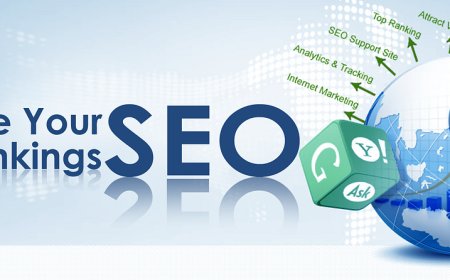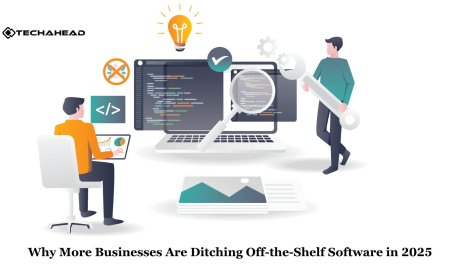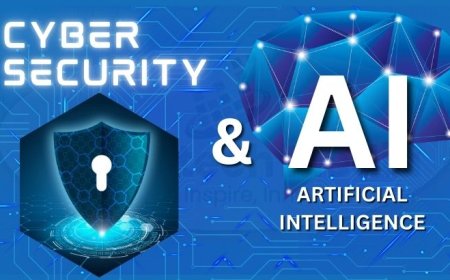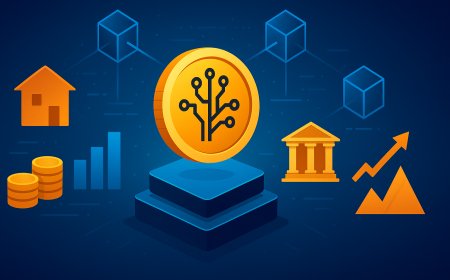Everything You Need to Know About Healthcare Software Development Solutions
Discover everything you need to know about healthcare software development solutions — features, benefits, compliance, and how they enhance patient care.

Introduction to Healthcare Software Development Solutions
Healthcare software development solutions have become an essential part of modern medical care. As healthcare providers face increasing challenges in managing patient information, improving patient outcomes, and complying with strict regulations, software solutions offer practical ways to address these issues. These solutions cover a wide range of applications from managing patient records and scheduling appointments to supporting telemedicine and improving communication between doctors and patients.
In simple terms, healthcare software development solutions refer to the process of creating customized digital tools designed specifically for the healthcare industry. The goal is to improve efficiency, accuracy, security, and overall patient care by leveraging technology. Whether you are a hospital administrator, a healthcare startup, or a clinic owner, understanding how these software solutions work and what benefits they bring is critical in todays digital health landscape.
Types of Healthcare Software Development Solutions
Electronic Health Records (EHR) and Electronic Medical Records (EMR)
One of the most common healthcare software solutions is the Electronic Health Record (EHR) system. These systems store detailed patient information, including medical histories, test results, treatment plans, and medications. EHRs allow doctors and healthcare providers to access patient data quickly and securely, making care more efficient and reducing errors.
EMRs are similar but tend to be used within a single medical practice, while EHRs are designed for sharing information across multiple healthcare providers and facilities. Both systems play a crucial role in digitizing patient records and streamlining healthcare workflows.
Telemedicine Platforms
Telemedicine platforms have become increasingly popular, especially after the rise of remote healthcare during the COVID-19 pandemic. These solutions allow patients to consult doctors via video calls, chat, or phone without physically visiting the clinic. Telemedicine software often includes features like appointment booking, secure communication, payment processing, and electronic prescription handling.
This kind of software development solution is essential for expanding access to healthcare, especially in rural areas or for patients with mobility issues. It also helps reduce the strain on healthcare facilities by managing patient flow more effectively.
Patient Management Systems
Patient management systems focus on organizing patient appointments, billing, insurance claims, and other administrative tasks. These solutions help healthcare providers keep track of patient visits, manage medical staff schedules, and handle payments in a smooth and organized way.
By automating administrative processes, patient management systems reduce manual errors and free up time for healthcare professionals to focus more on patient care.
Healthcare Mobile Applications
Mobile health apps are becoming a vital part of healthcare software solutions. These apps allow users to track their health data, set medication reminders, communicate with healthcare providers, and access educational content about their health conditions. Mobile apps may be patient-facing or designed for healthcare staff to improve workflow and communication.
Healthcare mobile apps increase patient engagement and help people take control of their health in real time, from anywhere.
AI and Analytics Solutions
Artificial intelligence (AI) and data analytics are transforming healthcare by providing insights that were once impossible to obtain. Healthcare software development solutions now include AI-powered diagnostic tools, predictive analytics for patient outcomes, and workflow automation.
These solutions can help doctors detect diseases earlier, personalize treatment plans, and optimize hospital operations. Analytics dashboards allow healthcare managers to monitor performance metrics, patient satisfaction, and operational efficiency.
Why Healthcare Software Solutions Are Important
Improved Patient Care and Outcomes
Healthcare software solutions provide doctors and staff with timely access to accurate patient data. This helps in making faster, better decisions about treatments and care plans. Features like alerts for medication interactions, reminders for check-ups, and real-time monitoring contribute to improved health outcomes.
Enhanced Data Security and Compliance
Patient data privacy is a top concern in healthcare. Healthcare software developers build solutions with security measures such as data encryption, access controls, and compliance with laws like HIPAA or GDPR. These measures protect sensitive information from unauthorized access or breaches.
Increased Efficiency and Reduced Costs
By automating routine tasks such as scheduling, billing, and record-keeping, healthcare software reduces administrative overhead and human errors. This results in smoother operations, reduced paperwork, and ultimately, lower operational costs.
Better Patient Engagement
Modern healthcare software solutions include tools that allow patients to view their health records, communicate with providers, and manage appointments easily. Engaged patients are more likely to follow treatment plans and maintain regular check-ups.
Scalability and Flexibility
As healthcare organizations grow or adopt new technologies, software solutions can be scaled and adapted accordingly. Cloud-based healthcare software allows providers to access data securely from anywhere and expand their systems as needed.
Key Features of Effective Healthcare Software Solutions
User-Friendly Interface
Healthcare software needs to be simple and intuitive for both medical staff and patients. Complex interfaces can lead to mistakes or slow down workflows. A good solution prioritizes clear navigation, readable fonts, and easy access to important information.
Interoperability
Different healthcare providers often use different systems. Effective healthcare software supports interoperability, meaning it can communicate and share data seamlessly with other platforms such as labs, pharmacies, and insurance companies. Standards like HL7 and FHIR help ensure smooth integration.
Robust Security Measures
Given the sensitivity of healthcare data, solutions must include strong security protocols such as multi-factor authentication, role-based access controls, data encryption, and regular security audits.
Compliance with Regulations
Healthcare software must comply with industry regulations and standards. Developers build features that support data privacy laws, audit trails for record-keeping, and mechanisms for breach notifications.
Real-Time Data Access and Updates
Healthcare professionals need access to up-to-date patient information instantly. Software solutions must provide real-time data synchronization across devices and locations, ensuring that every user sees the latest information.
Customizability
Every healthcare provider has unique needs. Software development solutions often offer customization options to tailor features, workflows, and reports according to specific requirements.
Read more:A Comprehensive Guide to Healthcare Software Development in 2025
How Healthcare Software Development Solutions Are Built
Understanding Client Requirements
The development process begins with gathering detailed information about the clients needs, goals, existing systems, and regulatory requirements. This step involves interviews, research, and feasibility analysis.
Planning and Designing
Next, software architects and designers create a blueprint of the softwares structure and user interface. Wireframes and prototypes help stakeholders visualize the end product and provide feedback.
Development and Coding
Developers write code to build the software according to the design and requirements. They use programming languages and frameworks best suited for healthcare applications, ensuring security and performance.
Testing and Quality Assurance
Thorough testing is done to catch bugs, security flaws, and usability issues. Healthcare software must undergo compliance and security audits as part of this stage to meet industry standards.
Deployment and Support
After successful testing, the software is deployed in the clients environment or made available on cloud platforms. Ongoing support, maintenance, and updates keep the software functioning smoothly.
Challenges in Healthcare Software Development Solutions
Meeting Regulatory Compliance
Regulations like HIPAA and GDPR are complex and constantly evolving. Developers must stay updated and design software that remains compliant at all times.
Integrating with Legacy Systems
Many healthcare providers still use older software that might not easily connect with new systems. Integration requires careful planning and often custom-built connectors.
Managing Data Privacy and Security
Healthcare data breaches can be devastating. Ensuring high-level security while maintaining usability is a delicate balance.
User Resistance and Training
Healthcare staff may be hesitant to adopt new software, especially if it changes familiar workflows. Effective training and user-friendly design help overcome this challenge.
Handling Large Volumes of Data
Healthcare generates massive amounts of data daily. Software solutions must be scalable and efficient to process and store this data without slowing down.
Future Trends in Healthcare Software Development Solutions
Increasing Use of Artificial Intelligence
AI will continue to be integrated into healthcare software, helping with diagnosis, patient monitoring, and administrative automation.
More Telehealth Expansion
Remote care platforms will grow and become more sophisticated, incorporating wearable data and virtual reality for therapy and training.
Blockchain for Secure Data Sharing
Blockchain will offer new ways to ensure data integrity, secure sharing, and patient control over their own health data.
Personalized Healthcare Software
Future solutions will focus more on personalized medicine, tailoring software features and health plans to individual patient needs.
Greater Focus on Patient Experience
Software will prioritize patient-centric design, making it easier for users to navigate their healthcare journeys.
Conclusion
Healthcare software development solutions are vital tools transforming the way medical care is delivered and managed. By digitizing patient records, enabling remote consultations, automating administrative tasks, and applying advanced technologies like AI, these solutions improve efficiency, security, and patient outcomes. Building effective healthcare software requires a clear understanding of healthcare workflows, compliance regulations, and user needs. It also demands strong technical skills to create secure, scalable, and interoperable systems.
As the healthcare industry continues to embrace digital innovation, working with experienced software developers who specialize in healthcare can ensure the creation of reliable and compliant solutions. Partnering with a skilled app development company can help healthcare organizations navigate the complexities of software development and deliver tools that truly make a difference in patient care and operational success.
FAQs
What types of healthcare software solutions are commonly developed?
Common solutions include electronic health records (EHR), telemedicine platforms, patient management systems, mobile health apps, and AI-powered analytics tools.
How do healthcare software developers ensure data security?
They use techniques like encryption, multi-factor authentication, role-based access, secure backups, and regular security audits to protect sensitive patient data.
Why is interoperability important in healthcare software?
Interoperability allows different healthcare systems to communicate and share data, which improves coordination of care and reduces errors.
How does healthcare software support compliance with laws like HIPAA?
Software includes features such as access controls, audit logs, breach notification systems, and data handling policies that meet legal requirements.
What role does user experience play in healthcare software development?
Good user experience ensures that healthcare providers and patients can easily and efficiently use the software, which leads to better adoption and fewer errors.



































